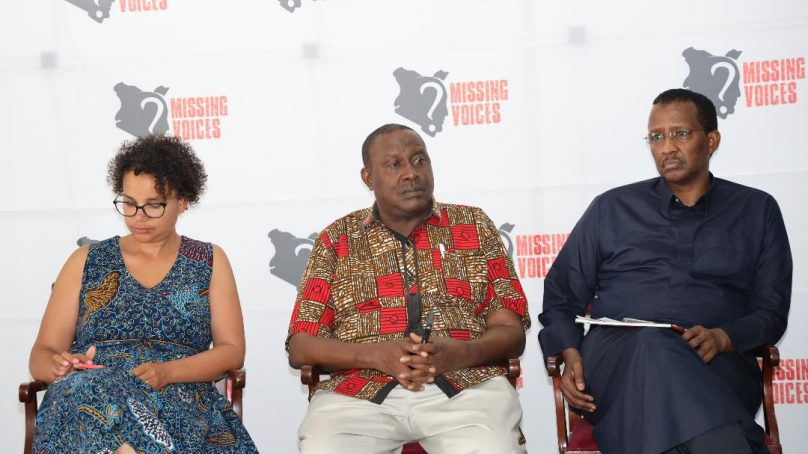
Independent Policing Oversight Authority (IPOA) has warned that inadequate funding, inadequate staffing and poor cooperation from the National Police Service (NPS) are undermining its mandate of investigating complaints against police officers.
Similar frustrations have in the past been expressed by Witness Protection Agency Director Nelson Njiri.
IPOA Chair Isaac Hassan says the authority still relies on the ministry of interior to approve its budget before it is tabled in the National Assembly – a process that exposes the institution to bureaucratic delays and weakens its financial independence.
“IPOA is supposed to be an independent body but the reality is that we still depend on another institution to release funds to us. This makes it difficult to operate with full autonomy,” Hassan told journalists during a training forum in Mombasa.
The authority currently has only 77 investigators and a total workforce of 284 staff to oversee a police force of about 125,000 officers.
The expression of frustration came days after President William Ruto constituted a reparations panel chaired by presidential advisor on constitutional affairs, Prof Makau Mutua. The panel has been criticised as a duplication and usurpation of mandates vested in independent state agencies such as Kenya National Commission on Human Rights, National Cohesion and Integration Commission (NCIC) and Witness Protection Agency.
The three state agency have all complained of underfunding and understaffing.
IPOA long-standing frustrations are captured by Independent Medico-Legal Unit (IMLU), which in June this year launched a report titled, Silenced but Unbowed, that details police criminality and obstruction of justice.
During the launch of the report three months ago President of the Law Society of Kenya (LSK) Faith Odhiambo decried the government’s slashing of funds for key human rights watchdogs such as the Kenya National Commission on Human Rights and the Independent Policing Oversight Authority.
“KNCHR is being crippled – reduced to an entity that can barely pay salaries, let alone serve the public. IPOA faces similar frustrations,” Odhiambo said. “Meanwhile, agencies like the National Cohesion and Integration Commission (NCIC), whose impact remains questionable, continue to receive generous funding.”
The IMLU report describes entrenched culture of impunity in the country’s security forces as an obstruction of justice. This environment, it says, is sustained by a persistent lack of accountability both at the individual and institutional levels.
Based on medical records, autopsy findings and eyewitness testimonies, the IMLU investigation presents a grim chronicle of abuse. According to the report, state violence has led to 63 confirmed deaths, 63 abductions, 26 missing persons, over 600 injuries and numerous documented cases of torture and illegal detention.
“This failure to address past and present crises stems from Kenya’s systemic failure to hold security agencies accountable – especially at the command level,” Regina Opondo, a board member at IMLU, says.
“While a few junior officers have been prosecuted in high-profile cases, such as the murder of lawyer Willie Kimani, the majority of violations remain unpunished. The doctrine of command responsibility, although enshrined in the International Crimes Act of 2011, remains grossly underutilised.”
Hassan noted that this glaring imbalance significantly slows down investigations, especially when coupled with deliberate resistance from police stations.
“Our investigators often require access to the occurrence book (OB) and arms register in police stations. These are vital documents for establishing accountability. Unfortunately, in many instances our officers are blocked from accessing them, which hampers the pace and quality of investigations,” he said.
Hassan disclosed that IPOA is handling 184 files linked to the post-election protests of 2022 and the recent “Gen Z” demonstrations.
The cases, many of which involve the use of live ammunition and excessive force, have been forwarded to the Office of the Director of Public Prosecutions (ODPP) for review and approval. The IPOA boss pointed out that the slow progress in concluding such cases erodes public trust in institutions meant to safeguard justice.
“Public confidence in state institutions is at epidemic levels of decline. The cynicism, criticism and apathy we are witnessing today have contributed to escalating levels of hate speech and toxic language on social media, which eventually manifest in violence during protests,” Hassan observed.
Internal Affairs Unit (IAU) Director Boniface Maingi pushed back on claims of hostility from the police service, explaining that IPOA and the IAU continue to work together in several cases.
“In incidents involving the use of firearms or the death of protestors, I may open the files, but the actual investigations are conducted by IPOA. That is the working arrangement we have,” Maingi explains. He adds that files from within the police service are sometimes handed over to IPOA for follow-up.
The funding challenge is not unique to IPOA. Witness Protection Agency (WPA) has also decried inadequate allocations that threaten its ability to guarantee the safety of witnesses in sensitive cases.
Director Nelson Njiri said the cost of maintaining one family of four under protection averages Ksh5 million annually, with the state covering 99 per cent of the agency’s operating expenses.
“Despite our budgetary limitations, the agency has been instrumental in ensuring the successful conclusion of many court cases by shielding witnesses from intimidation and harm. However, we do not publicise our successes for security reasons,” Njiri said.
Investigations experts have long argued that for IPOA to be effective, it must enjoy both financial and operational independence from the ministry of interior, while being adequately staffed and resourced to match the scale of the police service it oversees.
Hassan reiterated that without meaningful reforms, the authority’s ability to hold rogue officers accountable and restore public confidence in policing will remain elusive.
- A Tell Media report
Isaac Hassan (R), IPOA Chairperson, together with Internal Affairs Unit (IAU) Director Boniface Maingi (M), addresses a journalists’ forum in Mombasa on August 29, 2025. Credit: Chari Suche







